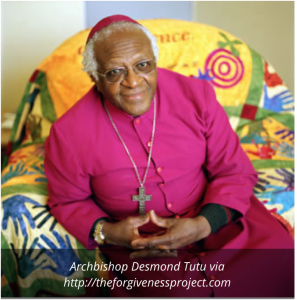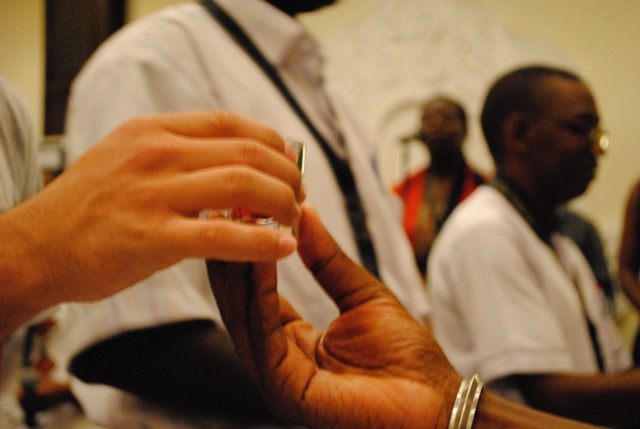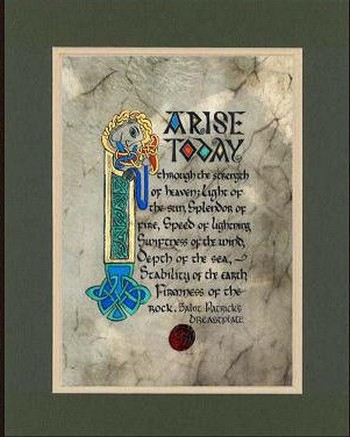
Daffodil by Barb Laski
It is world poetry day and also the first official day of spring here in the U.S. The daffodils are magnificent here in the Pacific NW so this seemed appropriate. My favourite Wordsworth poem. Enjoy!
I Wandered Lonely As A Cloud
William Wordsworth.
Sunday, April 10th 2022, is Palm Sunday and many from liturgical traditions are already thinking about making palm crosses. We love to process around the church waving our palm fronds. But after the service, the crosses and fronds are quickly discarded and the meaning of the season just as quickly fades from our memories.
This year, you might like to consider doing something creative with those fronds. Don’t throw them out, weave them into larger crosses and Easter symbols that can decorate your sacred space throughout the year as a reminder of this pivotal season of our faith. Then, when Ash Wednesday comes around next year and you want to burn those crosses, you will be able to make a substantial fire.
Here are some inspiring links and Youtube videos that might help you be creative with your own palm fronds.
Catholic Icing shares 10 Things to do with Palms for Palm Sunday. Great ideas for kids to get involved as well.
If you are curious how other cultures around the world celebrate Palm Sunday, take a look at CBC Kid’s.
Minas Thomas has created a whole series of videos on palm weaving from a Coptic Christian perspective that are well worth viewing. He instructs us on everything from a simple cross to braiding of palm fronds and, a more complex Coptic cross and a donkey. Here is the link to the first video:
Here is a beautiful video of a man teaching his grandkids how to make a palm heart, something I definitely plan to try with this year’s palm fronds.
And last, but definitely not least, I also love this video from Michael Nabil – a little more complex and requiring a little construction ability but I would love to give it a go.
More resources for Holy Week:
 Today I am posting two prayers associated with Desmond Tutu. The first is adapted from an original prayer by Sir Francis Drake. I first posted this prayer a couple of years ago and it continues to be one of the most popular on my blog. I like to post it each year as it is so appropriate for the season of Lent.
Today I am posting two prayers associated with Desmond Tutu. The first is adapted from an original prayer by Sir Francis Drake. I first posted this prayer a couple of years ago and it continues to be one of the most popular on my blog. I like to post it each year as it is so appropriate for the season of Lent.
Disturb us, O Lord
when we are too well-pleased with ourselves
when our dreams have come true because we dreamed too little,
because we sailed too close to the shore.
Disturb us, O Lord
when with the abundance of things we possess,
we have lost our thirst for the water of life
when, having fallen in love with time,
we have ceased to dream of eternity
and in our efforts to build a new earth,
we have allowed our vision of Heaven to grow dim.
Stir us, O Lord
to dare more boldly, to venture into wider seas
where storms show Thy mastery,
where losing sight of land, we shall find the stars.
In the name of Him who pushed back the horizons of our hopes
and invited the brave to follow.
Amen
The second prayer is from Desmond Tutu’s An African Prayer Book.
Victory is Ours
Goodness is stronger than evil;
Love is stronger than hate;
Light is stronger than darkness;
Life is stronger than death;
Victory is ours through Him who loves us.
This has been adapted and put to music by John Bell.
The words for the song are:
Goodness is stronger than evil, Love is stronger than hate;
Light is stronger than darkness, life is stronger than death;
Victory is ours, Victory is ours
through God who loves us.
Victory is ours, Victory is ours
through God who loves us.
Music by John Bell
GIA (c) 1996 Iona Community
And much to my delight later found this delightful rendition of the song.
As an Amazon Associate I receive a small amount for purchases made through appropriate links

“There are some wounds. only africa can heal.” –nayyirah waheed, salt
I am a daughter of Africa and yet I was in my late 30s, before the door into the continent finally creaked open. I had been to China, Mexico and Australia before I ever set foot on the rest of our continent.
During my growing up years, there were no visas for the white Afrikaners who implemented Apartheid. We visited Germany, England and Belgium, instead.
In my younger years, Africa did not have my face. I lifted my eyes to Europe and beyond, like a daughter who turned her heart away from her mother, thinking the woman across the street had better bobotie.*
Then democracy broke through in South Africa and we sang freedom songs in the lineup to vote. Even though wanderlust called and I moved away shortly after that, a deep hunger grew in my heart.
I know now: We can’t deny where we come from.
With that same hunger, grew a sense of unworthiness. Most days I could avoid it, until someone asked, So where are you from?
Then my white face and my Afrikaans accent gave me away and for the first time in my life, I felt deep shame for being an Afrikaner. I suddenly felt like the face of a pariah people. I felt like I deserved my self-imposed exile.
I dared not enter the gates into Africa again.
I was not worthy of her face.
I was not worthy of her soil beneath my feet.
I had rejected her and, of course, I argued, she would reject me.
Around my 37th birthday, I learned about a hairdressing school in Nairobi that empowered women to walk out of the chokehold of poverty. A friend told us how the local church had trouble keeping the school open due to the rent. It was one small sentence in a whole story, but it kept tugging at my thoughts. I kept wondering, What if I could do something?
Saying yes to doing something, felt like small act of solidarity. I could do that one thing.
Then I heard about Amahoro Africa, a gathering of theologians and practitioners from mostly western and southern Africa, who gathered every year in friendship and conversation.
I was planning on going to my 20th high school reunion near Cape Town that year. But as we approached the time to register for Amahoro, I knew I desperately wanted to go to Kenya.
So, I booked a ticket to Mombasa. My hands shook.
I wasn’t worthy.
When I landed, I stood on that tarmac in Nairobi and took pictures of the sky. I couldn’t believe I had finally been allowed access …
I, who had denied others so much, was now allowed in.
I was finding a piece of myself in the sunshine and the expanse of the sky. I walked comfortably on the sidewalks and didn’t skip a beat.
I was at home in that vastness, in the hustle and bustle and the rhythms on the street.
I flew to Mombasa and my heart felt like it was beating outside my chest. I felt like I could burst with the goodness of being on the soil of my soul.
I walked on the beach at Mombasa while the tears dripped down my face …
The same happened during worship.
I sat down for meals and got to know friends from Burundi and the Democratic Republic of the Congo and Zimbabwe and Rwanda and South Africa and I wanted to cry to myself: Do you get how beautiful this is? Do you get how healing this is? Do you get how many walls are broken down with a single conversation, a smile, a hug, a shared meal? I could feel the dismantling of the apartheid in my own soul.
My heart soaked it all in. Every day. Every conversation. A gift.
Then, on the last day, we were invited into Communion.
Come with a friend, they said. Come, have communion together.
People went up and I sat, my heart beating wildly. Who would I go with?
Then my eyes met the eyes of a sister from the Democratic Republic of the Congo.
She nodded.
I didn’t feel worthy.
We held the cups and my hand was shaking so badly, I could hardly serve her.
Does she not know who I am? This white daughter of Apartheid?
And yet …
She held the bread and I ate … so hungry.
Jesus’ body, broken for me.
And I gave to her …
So unworthy of her grace, sharing the sacrament with me.
She ate.
Jesus’ body, broken for every one of us.
Jesus’ blood, shed for you, she said.
I sipped the cup.
And I gave to her too ….
She drank.
We shared the holy meal and the moment was eternally drenched in Light. We stood as sisters at that table.
I was invited in, just as I was inviting in.
We stood in a world in which everyone belongs at the table and I felt a little closer to the world as God intended: reconciled, forgiven, deeply graced.
________________
*A traditional curried beef dish in South Africa
About Idelette:
Idelette is an immigrant, mother of three, restaurant wife and Founder and Editor-in-Chief of SheLovesmagazine.com. She was born and raised in South Africa where her eyes were opened to how insidious injustice can be. She found Jesus around a breakfast table in Taiwan.
Idelette now lives in Surrey, Canada, but her home is the world. She loves Jesus, justice and living juicy.
Twitter: @idelette
Instagram: @idelettemcvicker
Facebook: Idelette
Website: SheLovesmagazine.com
Blog: Idelette.com


I have been thinking about those creatures that resemble each other so closely they seem twins—alligators and crocodiles, dolphins and porpoises, camels and dromedaries, bees and wasps, ostriches and emus. I like to imagine God imagining these subtle differences, having created an alligator and then wondering how it would look with a slightly more narrow snout or having breathed life into the honeybee and then considering a more slender and smooth version. Why stop creating, God might have asked, when variation is so much fun. I imagine God growing almost giddy with pleasure, shrinking a crow down into a grackel, flattening a deer’s antlers into an elk’s. And then there were all the furred patterns to consider, all the shapes of ear. God must have become fully engrossed, working right through lunch, the way some of us do when we are absolutely engaged with our work.

Variety, difference, diversity—for me, those are all words that ultimately mean pleasure. My breath catches those rare summer mornings when I glance out our kitchen window and see a blue bunting at the feeder. I feel stunned by its color, its flash. Often it will be accompanied by yellow finches which are also brightly stunning. They are impossible to overlook, but in paying attention to them, I find myself also paying greater attention to those other birds I’d classify as ordinary, the sparrows, the robins. These birds may be less startling, but they possess their own subtle variations, differences that require me to focus more fully if I am to notice them. The unusual birds startle me into attention, while the common ones require a more intentional habit of attention.
Some people might call this mindfulness, and I suppose it is. I slow down for a few seconds, aware of the life that surrounds me, before I re-enter the busyness of my overcrowded life. I vow to become less busy, to create enough space in my day to appreciate the creatures who wander across my yard and perch in the trees I sit beneath. Of course such a practice would be good for me, and I suppose it might also ultimately be good for the rabbits and deer and skunks since my attention is benevolent. My greatest concern, though, isn’t for me alone or even for each of the multiple other species I encounter, but for us—that great “us” that encompasses all of creation.

So often, I recognize that I have become detached from the world around me not through any overtly hostile act but through simple inattention. When I pay closer attention, I realize that I experience reconciliation with creation. I understand my place in the world more deeply. I live within the fullness of creation rather than apart from it. The more I attend to creation—even if only through a window—the more I appreciate it, and the more I appreciate it, the less harm I am willing to commit.
Will we human beings ever become fully reconciled with all of creation? Perhaps not. Perhaps our temptations toward dominance and exploitation will always prevail. But I am not willing to surrender to such a fate quite yet. We are created in the image of God, and the God who is our great creator is also our great reconciler. What if every morning we awoke and recalled who we are, images of God? What if we gazed out our windows, through the dangling icicles, and called them good? What if we watched the wild turkeys parading across the frozen fields and called them good? What if, as evening drifted down, we heard an owl swoop toward a field mouse and called it all good?
We can bless the world each day with our words and our acts. Why don’t we give it a try? Why don’t we even, perhaps, begin today?
————————————————————————————-
 Lynn Domina is the author of two collections of poetry, Corporal Works and Framed in Silence, and the editor of a collection of essays, Poets on the Psalms. She is a student at the Earlham School of Religion, where she has taken classes in the Ministry of Writing, and she currently lives in upstate New York. You can find out more at http://lynndomina.com .
Lynn Domina is the author of two collections of poetry, Corporal Works and Framed in Silence, and the editor of a collection of essays, Poets on the Psalms. She is a student at the Earlham School of Religion, where she has taken classes in the Ministry of Writing, and she currently lives in upstate New York. You can find out more at http://lynndomina.com .
 A wake-up call…today’s college students will be the first generation to inhabit an America that is no longer dominantly white! So how can we all get ready to celebrate our richly multi-cultural future? This is a wonderful opportunity to Social Innovate and Join the Feast!
A wake-up call…today’s college students will be the first generation to inhabit an America that is no longer dominantly white! So how can we all get ready to celebrate our richly multi-cultural future? This is a wonderful opportunity to Social Innovate and Join the Feast!
Journey to Mosaic is an important social innovation that our friends in the Covenant Church have created that is helping people from all kinds of backgrounds to take small steps not only toward reconciliation, but also the celebration of making new friends and experiencing the richness of other cultures.
Join Jocelyn and a bus load of her new friends from the Pacific Southwest Conference of the Covenant Church as they spent three days traveling together from Oakland California to Los Angeles. Jocelyn, our narrator, introduces herself as a 5th generation Chinese American who grew up in a largely white suburban community. Everyone on the bus is sitting next to a person from a different racial and cultural background.
The bus trip began by spending time hearing about the agendas and activism of those involved in the Black Panther Party. Next they headed to the Central Valley and spent time hearing the stories and struggles of farm workers. When they ended their trip in LA they met with older couples who have survived the internment of Japanese Americans during World War II.
After each stop Jocelyn and her seat mate discussed not only what they learned but also to what they experienced. She shared that she quickly moved from being a tourist to being a participant in a very engaging trip. She reflected, “For me, cherish the memories of talking with my brothers and sisters about the vitally important yet difficult topic of race. Along the way I was forced to consider and confess my own prejudices, realize the impact that being a minority has had on my own life, and reach for ways to level the playing field for all people.” a small step towards reconciliation – (source)
Send me your stories about innovation that is having an impact on your life and the lives of others…I want to share so we can learn from one another and stir-up new possibilities in times like these.
——————————————————————————————————-
Tom Sine is research guy at Mustard Seed Associates and hospitality guy at the Mustard Seed house. He has worked for many years as a consultant in futures research and planning for both Christian and secular organizations.

St Patrick, whose life we celebrate March 17th is one of my favourite Celtic saints. His prayers are particularly powerful tools to help us focus our faith and draw closer to God. Though St Patrick’s breastplate is the best know of these, there are others like this one that are equally as powerful.
May the Strength of God guide us.
May the Power of God preserve us.
May the Wisdom of God instruct us.
May the Hand of God protect us.
May the Way of God direct us.
May the Shield of God defend us.
May the Angels of God guard us.
– Against the snares of the evil one.
May Christ be with us!
May Christ be before us!
May Christ be in us,
Christ be over all!
May Thy Grace, Lord,
Always be ours,
This day, O Lord, and forevermore. Amen.
St Patrick’s Prayer for the Faithful
As an Amazon Associate, I receive a small amount for purchases made through appropriate links.
Thank you for supporting Godspace in this way.
When referencing or quoting Godspace Light, please be sure to include the Author (Christine Sine unless otherwise noted), the Title of the article or resource, the Source link where appropriate, and ©Godspacelight.com. Thank you!

